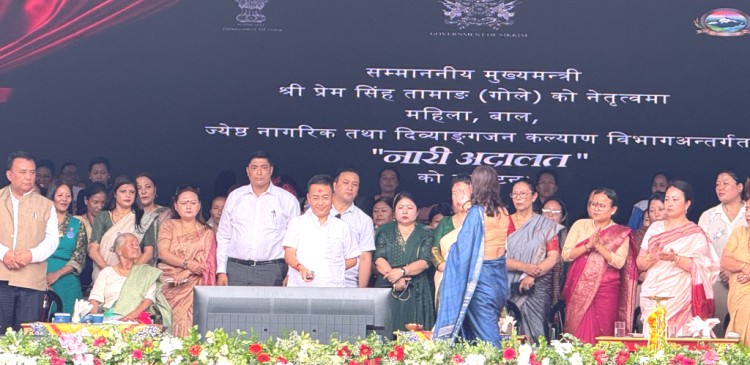




















Monday, Aug 11, 2025 23:15 [IST]
Last Update: Sunday, Aug 10, 2025 17:40 [IST]
PAKYONG, (IPR): Chief Minister Prem Singh Tamang-Golay launched Nari Adalat
under Women, Child, Senior Citizen and Divyanjan department, Government of
Sikkim at Rangpo ground on the occasion of first Amma Samman Diwas on Sunday.
Nari
Adalat is a community-based forum run by women to provide accessible and
informal justice, especially in rural and semi-urban areas of Sikkim. It is
part of the “Sambal” sub-scheme under Mission Shakti, a programme of the
Ministry of Women and Child Development, Government of India. The idea behind
Nari Adalat is to empower women to address disputes and social issues that
directly affect them, without having to depend entirely on the formal court
system.
The
primary aim of Nari Adalat is to offer a supportive, non-intimidating
environment where conflicts can be resolved locally. It focuses on minor
disputes such as family disagreements, non-severe domestic violence cases,
marital issues, property conflicts within families, child custody and
maintenance matters, harassment, dowry-related problems, and other issues
concerning women’s rights. By operating at the community level, it ensures that
justice is quicker, free of cost, and sensitive to local realities.
A key
feature of Nari Adalat is that it is led entirely by women, often including
members of Self-Help Groups, trained social workers, and local women leaders.
It is not a formal court but an alternative dispute resolution platform. People
can bring their grievances without needing lawyers or paying court fees. The
process involves receiving complaints, holding hearings within the village,
listening to both sides, offering counselling and mediation, and, if possible,
reaching a resolution that both parties agree to.
Unlike
regular courts, which involve formal legal procedures, official judges, and
lengthy processes, Nari Adalat works in a flexible and dialogue-based manner.
Its focus is not only on resolving disputes but also on restoring harmony
within the community. This approach strengthens women leadership, builds trust
in local governance, and promotes gender equality by ensuring that women play a
central role in decision-making processes that affect their lives.